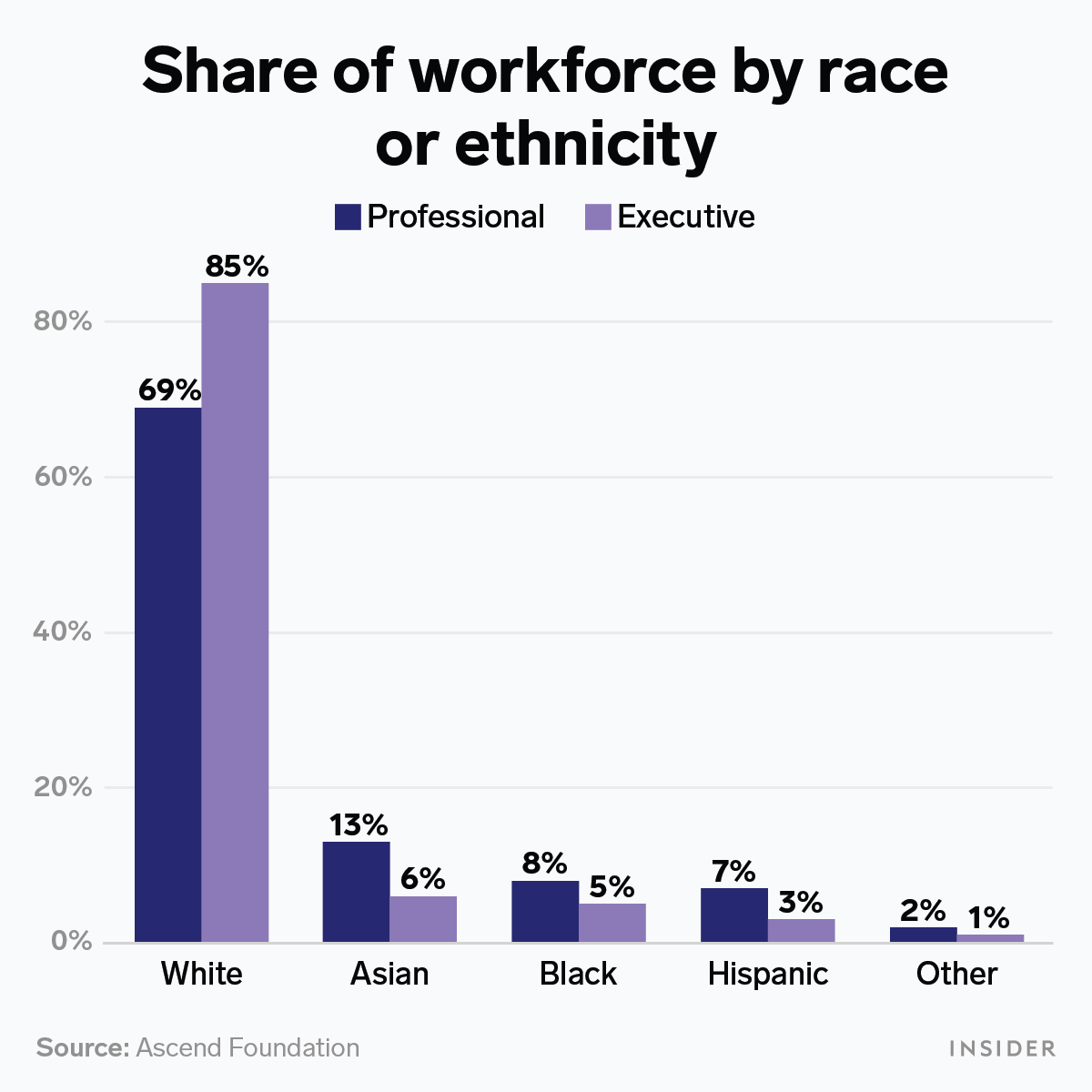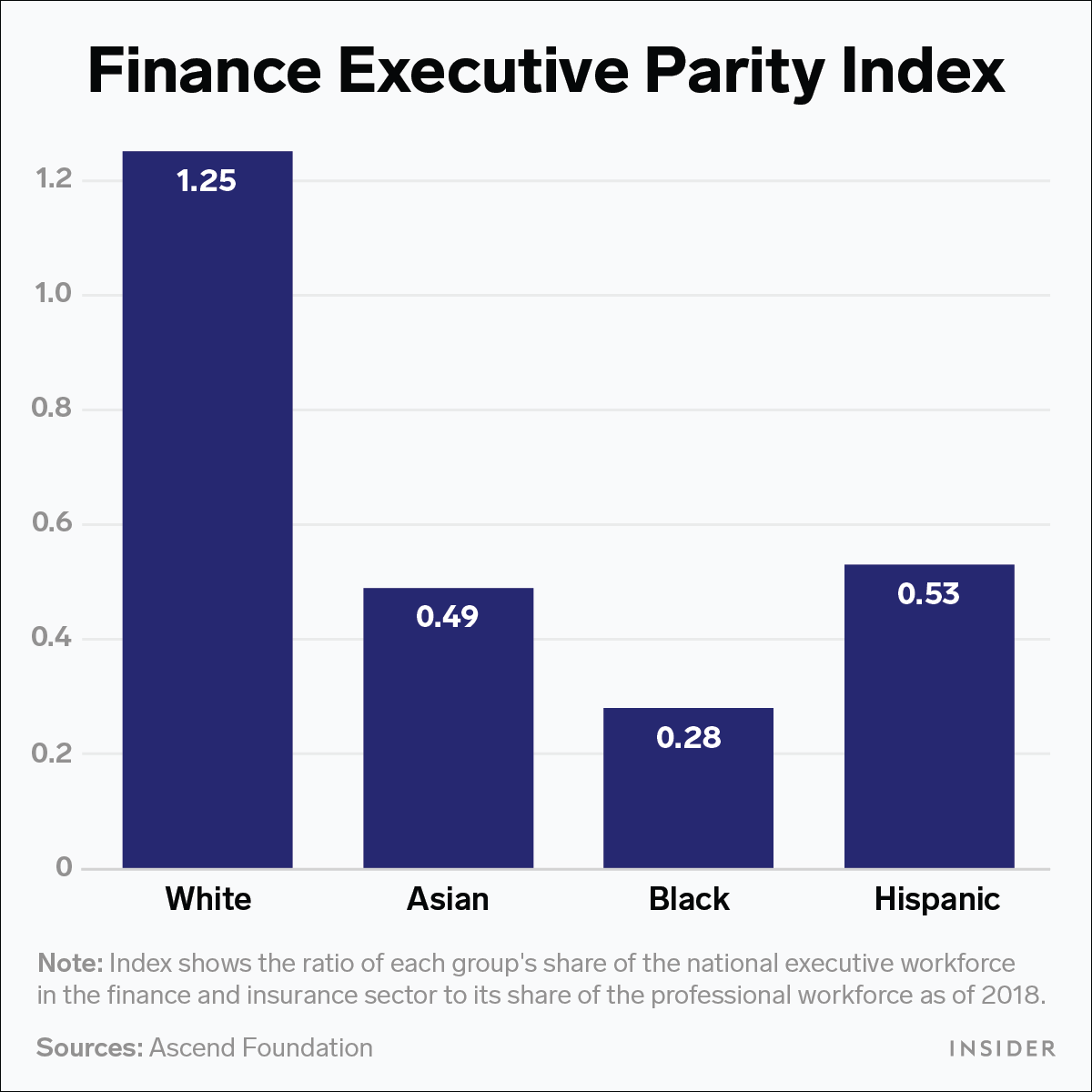The "model minority" myth paints Asian Americans as overrepresented in the highest echelons of society.
But a closer look shows that there's a big problem with the pipeline for Asian Americans moving up the corporate ladder. ⬇️
businessinsider.com/asian-american…
But a closer look shows that there's a big problem with the pipeline for Asian Americans moving up the corporate ladder. ⬇️
businessinsider.com/asian-american…
While there is a high level of Asian American representation in professional roles, research into career advancement across workers of various ethnicities suggests the group remains deeply underrepresented among managerial and executive positions.
businessinsider.com/asian-american…
businessinsider.com/asian-american…

Buck Gee, an executive advisor to the Ascend Foundation, a non-profit dedicated to improving Asian American representation in the workforce, said the issue isn't representation across all roles.
"The problem is equity of promotions."
businessinsider.com/asian-american…
"The problem is equity of promotions."
businessinsider.com/asian-american…
The Ascend Foundation analyzed 2018 data from the Equal Employment Opportunity Commission (EEOC).
Based on representative data, Asian Americans made up about 13% of the professional workforce and 6% of executives, senior officers, and managers.
businessinsider.com/asian-american…
Based on representative data, Asian Americans made up about 13% of the professional workforce and 6% of executives, senior officers, and managers.
businessinsider.com/asian-american…

Ascend's Executive Parity Index found that in 2018, white Americans were overrepresented in executive positions relative to their share of the white-collar professional workforce, while non-white groups, including Asian Americans, were underrepresented.
businessinsider.com/asian-american…
businessinsider.com/asian-american…

An earlier Ascend Foundation analysis focused on Silicon Valley.
It found that while Asian Americans' workforce representation was higher, they were similarly underrepresented at the executive level.
businessinsider.com/asian-american…
It found that while Asian Americans' workforce representation was higher, they were similarly underrepresented at the executive level.
businessinsider.com/asian-american…

The finance and insurance sector show similar results, based on 2018 national data provided to Insider by Ascend.
businessinsider.com/asian-american…
businessinsider.com/asian-american…

To address diversity issues with the executive pipeline, Gee told Insider that diversity and inclusion programs need to "look beyond the superficial numbers and recognize that a review of diversity must separately examine three issues." ⬇️
businessinsider.com/asian-american…
businessinsider.com/asian-american…

Gee said companies should create "an executive sponsorship program for high-potential AAPI senior managers."
Denise Peck, an executive advisor with the Ascend Foundation, said one of these programs at her old company was successful.
businessinsider.com/asian-american…
Denise Peck, an executive advisor with the Ascend Foundation, said one of these programs at her old company was successful.
businessinsider.com/asian-american…

📰 For just $1, you can enjoy unlimited access to all of Insider's premium content for a month, and then pay only $1 per week.
Don't miss out on our limited-time sale.
businessinsider.com/subscription?u…
Don't miss out on our limited-time sale.
businessinsider.com/subscription?u…

• • •
Missing some Tweet in this thread? You can try to
force a refresh








